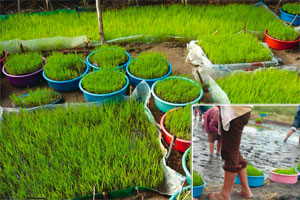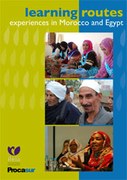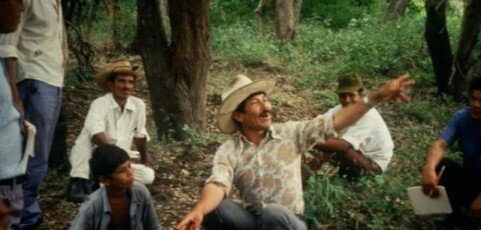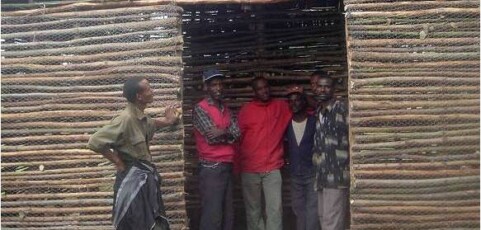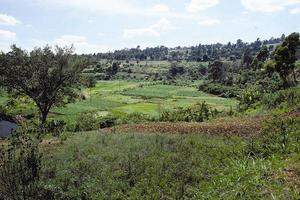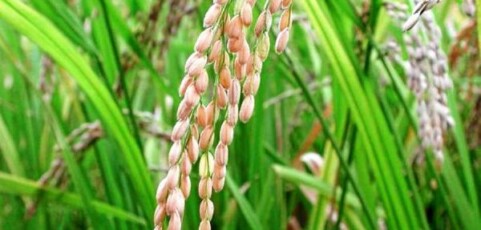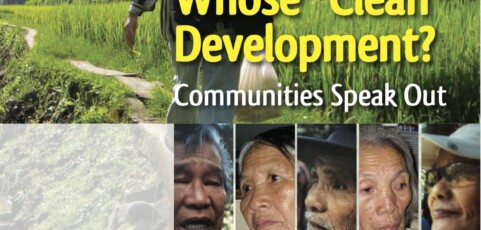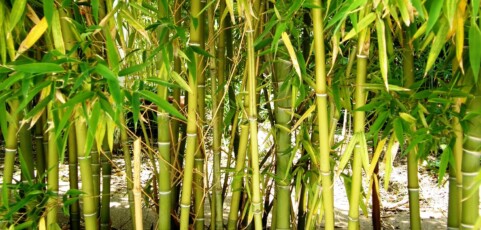Aunque difícilmente se alcanza lo suficiente para satisfacer la demanda nacional, la producción de arroz en el Perú es alta, lo que refleja un sistema de producción aparentemente eficiente. Read more
Learning routes: Experiences in Marocco and Egypt
In 2013, two learning routes took place on the themes of farmer organisations in Morocco and water management in Egypt.
ILEIA joined both Learning Routes, carrying out preparatory analysis of the main lessons in the host countries, and documenting how and what the participants (ruteros) learned during the actual route. Read more
Learning for rural change: 18 stories from Sudan
A great variety of rural development initiatives are taking place in the Republic of Sudan. In this book, the outcome of a documentation and communication training in Khartoum in 2013, practitioners describe and analyse some of the most promising experiences. Read more
Measuring farmer’s agroecological resistance in the wake of Hurricane Mitch
This study, published in 2001 by IIED, is the outcome of a participatory action research carried out in cooperation with the Campesino a Campesino, a farmer-led sustainable agriculture movement in Latin America. It compares the sustainability of conventional to agroecological farms after Hurricane Mitch, covering 360 communities of smallholders from southern Nicaragua to eastern Guatemala.
From gray to green : replanting hope in Africa’s highlands
In Uganda’s Kabale district, too many people had been trying to make a living from too little land. Because of overpopulation and exhaustion of the soil by intense cultivation, the area had gone into decline. Then, researchers and farmers — supported by the International Development Research Centre — joined forces to revitalize the region.
See: http://hdl.handle.net/10625/34762
Learning in the field : Isang Bagsak helps people chart their own future
A new form of peer learning, developed jointly by researchers and development practitioners in Africa and Asia, uses face-to-face meetings, field practice, and Internet links to learn from each other about participatory approaches to research in natural resource management. Available also in French and Arabic.
The Rwenzori Experience
Environment and Development Series No. 15.
This booklet is a portrait of a unique participatory learning project involving farming communities in the Rwenzori region of Western Uganda. The project brought rural households together in ‘Farmer Family Learning Groups’ (FFLGs) with the aim of enhancing community food security.
This booklet looks at the guiding principles behind the project, how it has worked in practice, the successes achieved and the challenges faced.
Agricultura Familiar Agroecológica Campesina en la Comunidad Andina
Las experiencias de producción familiar agroecológica en diferentes regiones del mundo han evidenciado que es una opción viable para promover la seguridad alimentaria y, al mismo tiempo, conservar la biodiversidad de nuestros países. En los países andinos, los pequeños productores junto con los
movimientos agroecológicos han cumplido un rol importante para la promoción y sostenimiento de este tipo de iniciativas, como una propuesta con potencial para atender la precaria situación prevaleciente en el campo. Con el propósito de difundir estas iniciativas agroecológicas en la Comunidad Andina, los gobiernos nacionales, junto con la Secretaría General de la CAN, ejecutaron el Proyecto “Promoción de la Agricultura Familiar Agroecológica Campesina en la Comunidad Andina”. La presente publicación presenta un resumen de los principales resultados de este trabajo.
Whose “clean” development? Communities Speak Out
Three case studies from India, Philippines and Thailand on Clean Development Mechanism:
Our analysis, and that of many communities and organisations across Asia, is that the CDM is an extension of the generalised approach to big project and energy intensive development that has systematically marginalised indigenous peoples and local communities and over- exploited the Earth. The “clean development mechanism” is, quite simply, a mechanism that allows polluters to avoid binding emissions reductions in one location, while shifting emissions to another location. At the same time, it allows corporations and state entities to reap additional profits from projects that are questionable in terms of sustainability, community benefits or even addressing climate change.
The Agro-ecological Village Development Model: Experiences in the Philippines and China
An agro-ecological approach to rural development in the Philippines and China, devloped by Resource Efficient Agricultural Production Canada (REAP-Canada).

